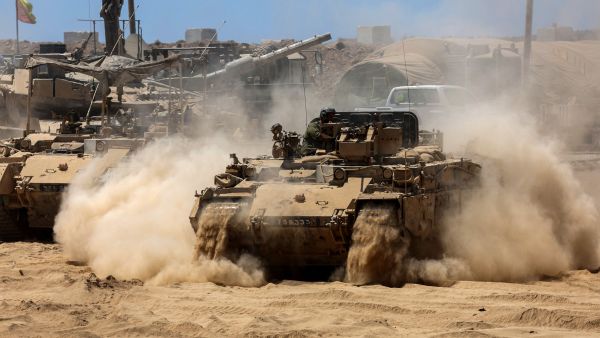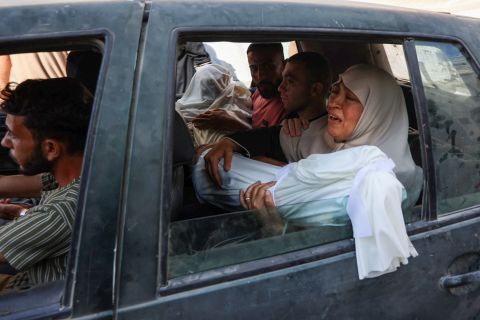ALBAWABA- Cairo is currently hosting high-level Egyptian-Qatari-Israeli meetings aimed at securing a ceasefire in Gaza, with discussions centered on humanitarian access, medical evacuations, and the return of stranded individuals.
An Egyptian source reported to Al Arabiya noticeable progress, with consensus emerging on several key humanitarian aspects of the proposed deal. Talks are expected to continue for two days, as Egypt pushes to remove obstacles blocking a final agreement and ensure adequate aid flows into the besieged enclave.
As part of the negotiations, Israel has presented a revised “third deployment map” outlining its proposed military positions during the suggested 60-day truce.
According to sources cited by the Jerusalem Post, Tel Aviv has shown increased flexibility, particularly regarding troop deployment along the southern Gaza-Egypt border, between the Morag and Philadelphi corridors.
The updated plan includes reducing Israeli military presence to a two-kilometer buffer zone near Rafah, with signals that further troop withdrawals may be possible during the ceasefire period.
Despite these developments, core disputes persist. Hamas continues to demand a full Israeli withdrawal to pre-March ceasefire positions. At the same time, Israel remains hesitant, previously insisting on maintaining a larger three-kilometer zone and control of the Morag corridor separating Rafah from Khan Younis.
While Israeli media outlets have described the Doha-mediated negotiations as making “dramatic progress,” deadly Israeli airstrikes across Gaza continue unabated.
On Tuesday, over 60 Palestinians were reportedly killed, including an entire family with women and children, in strikes on shelters and residential areas.
A similar death toll was recorded the day before, reinforcing what many rights groups are calling a routine campaign of mass killing under the guise of security operations.
Amid this military escalation, political instability deepens in Israel. On Wednesday, a second ultra-Orthodox (Haredi) party withdrew from Prime Minister Benjamin Netanyahu’s coalition, following a similar move the previous day by Degel HaTorah.
These back-to-back defections leave the ruling bloc with only 61 seats in the Knesset, placing Netanyahu’s government on the brink of collapse at a critical juncture in the war and ceasefire negotiations.










![Turkish series "Ask-ı Memnu" [Forbidden Love]. Turkish series "Ask-ı Memnu" [Forbidden Love].](/sites/default/files/styles/d02_traditional/public/2026-02/%D8%A3%D8%A8%D8%B7%D8%A7%D9%84-%D9%85%D8%B3%D9%84%D8%B3%D9%84-%D8%A7%D9%84%D8%B9%D8%B4%D9%82-%D8%A7%D9%84%D9%85%D9%85%D9%86%D9%88%D8%B9.jpg?h=c673cd1c&itok=nhq8-5rH)


